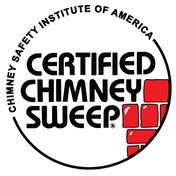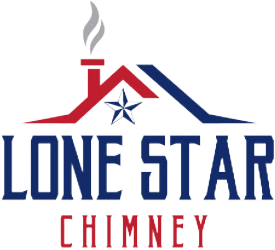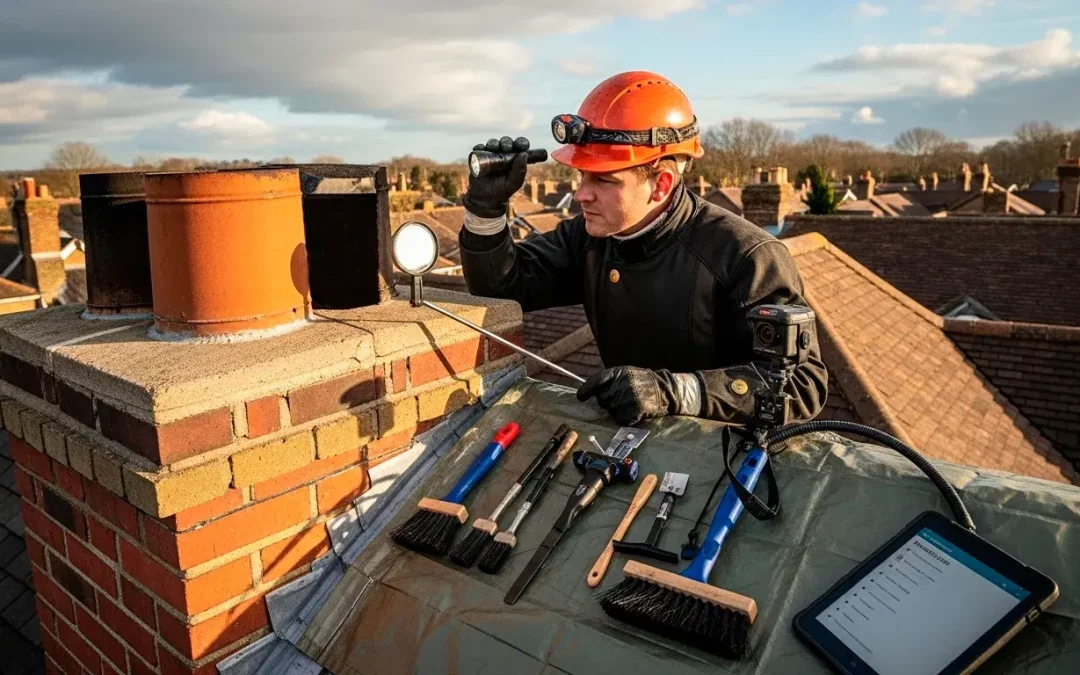Houston homeowners understand the importance of maintaining their property, but many overlook one critical component that requires regular attention: the chimney system. A Level 1 chimney inspection serves as the foundation of proper chimney maintenance, providing essential safety assessments that protect both property and lives. This comprehensive examination represents the most basic yet crucial type of chimney evaluation, designed to identify potential hazards and ensure optimal performance of your heating system.
The unique climate conditions in Houston, Texas, create specific challenges for chimney systems that make regular inspections even more critical. High humidity, occasional freezing temperatures, and severe weather events can accelerate deterioration and create safety concerns that require professional evaluation. Understanding when and why to schedule a Level 1 chimney inspection empowers homeowners to make informed decisions about their property maintenance and family safety.
Lone Star Chimney recognizes that educated homeowners make better decisions about their property maintenance needs. By understanding the scope and importance of Level 1 inspections, Houston residents can proactively address potential issues before they become costly repairs or dangerous situations. This knowledge proves invaluable when determining the appropriate timing and frequency for professional chimney evaluations.
Understanding the Fundamentals of Chimney Inspection Standards
The National Fire Protection Association (NFPA) establishes three distinct levels of chimney inspection, each designed for specific circumstances and safety requirements. A Level 1 chimney inspection represents the most commonly performed evaluation, focusing on readily accessible portions of the chimney system without requiring specialized equipment or invasive procedures.
This standard inspection involves a thorough visual examination of all accessible areas, including the exterior chimney structure, interior firebox, damper assembly, and visible portions of the flue. Professional inspectors assess the overall condition of these components, looking for signs of damage, deterioration, or safety concerns that could compromise the system’s performance or create hazardous conditions.
The inspection process also includes verification that the chimney structure and flue are appropriately sized for the connected appliance, ensuring proper draft and ventilation. Inspectors evaluate clearances to combustible materials, examine the chimney cap and crown condition, and assess the overall structural integrity of visible components. This comprehensive yet non-invasive approach provides essential safety information while maintaining cost-effectiveness for routine maintenance needs.
Lone Star Chimney emphasizes that Level 1 inspections form the cornerstone of responsible chimney maintenance, providing homeowners with critical safety information without the expense and complexity of more invasive evaluation methods. These inspections offer sufficient detail for most routine maintenance decisions while establishing baselines for future reference and comparison.
The Scope and Limitations of Level 1 Evaluations
A fireplace inspection at the Level 1 standard focuses specifically on readily accessible areas without requiring removal of components or specialized equipment. This approach allows inspectors to identify obvious safety concerns and maintenance needs while keeping costs reasonable for routine evaluations. The inspection covers exterior chimney components visible from ground level, interior firebox areas, and damper mechanisms accessible through normal operation.
However, Level 1 evaluations have inherent limitations that homeowners must understand. These inspections cannot detect problems hidden behind walls, within inaccessible portions of the flue, or in areas requiring specialized equipment to examine. Issues such as internal flue damage, hidden structural problems, or concealed fire damage may not be apparent during a standard Level 1 assessment.
The visual nature of Level 1 inspections means that certain types of damage or deterioration may remain undetected until they progress to more obvious stages. Creosote buildup in upper flue sections, minor cracks in inaccessible areas, or early-stage water damage may not be visible during routine evaluations. Understanding these limitations helps homeowners make informed decisions about when additional inspection levels may be necessary.
Professional inspectors from Lone Star Chimney clearly communicate both the benefits and limitations of Level 1 evaluations, ensuring homeowners have realistic expectations about what these inspections can and cannot detect. This transparency allows property owners to make informed decisions about their chimney maintenance needs and understand when more comprehensive evaluations might be beneficial.
When Houston Homeowners Should Schedule Level 1 Inspections
The timing of chimney check Houston services depends on several factors, including usage patterns, age of the system, and specific circumstances that may indicate the need for evaluation. The NFPA recommends annual chimney inspection for all heating appliances, regardless of fuel type or frequency of use, as a fundamental safety practice that helps identify potential problems before they become serious hazards.
Homeowners who use their fireplace or heating appliance regularly throughout the heating season should prioritize annual inspections to ensure continued safe operation. Even occasional use generates creosote deposits and can contribute to system deterioration that requires professional evaluation. The accumulation of debris, animal nests, or weather-related damage can occur regardless of usage frequency, making regular inspections essential for all chimney systems.
Property transactions represent another crucial time for chimney evaluations, as both buyers and sellers benefit from professional assessments of chimney condition and safety. Real estate transactions often reveal maintenance needs that previous owners may have overlooked, and professional inspections provide objective documentation of system condition for all parties involved.
Specific circumstances that warrant immediate Level 1 inspections include any changes to the heating system, such as appliance replacement or fuel conversion. Storm damage, nearby construction activities, or visible signs of deterioration also indicate the need for professional evaluation. Homeowners experiencing performance issues such as poor draft, smoke entering the room, or unusual odors should schedule inspections promptly to identify and address potential safety concerns.
The Critical Role of Annual Chimney Inspection in Houston’s Climate
Houston’s unique environmental conditions create specific challenges for chimney systems that make regular maintenance and inspection particularly important. The city’s high humidity levels can accelerate deterioration of masonry components, while occasional freezing temperatures create freeze-thaw cycles that damage mortar joints and masonry surfaces. These conditions make annual chimney inspection an essential practice for maintaining system integrity and safety.
The Gulf Coast climate also contributes to increased vegetation growth and animal activity that can affect chimney systems. Birds, squirrels, and other wildlife may attempt to nest in chimneys, creating blockages that prevent proper ventilation and create fire hazards. Heavy rainfall and severe weather events common to the Houston area can cause water intrusion problems that lead to structural damage and safety concerns.
Lone Star Chimney understands that Houston’s climate creates unique maintenance requirements that differ from other regions. The combination of high humidity, severe weather potential, and active wildlife requires specialized knowledge and experience to properly evaluate chimney systems. Professional inspectors familiar with local conditions can identify problems specific to the Gulf Coast environment and recommend appropriate preventive measures.
The seasonal nature of fireplace use in Houston means that chimney systems often sit idle for extended periods, allowing problems to develop unnoticed. Moisture intrusion during humid summer months can cause significant damage that becomes apparent only when the system is put back into service. Regular inspections help identify these issues before they compromise safety or require extensive repairs.
Identifying When to Upgrade to Higher Inspection Levels
While Level 1 inspections meet most routine maintenance needs, certain circumstances indicate the need for more comprehensive evaluations. A chimney flue check that reveals potential problems or raises concerns about hidden damage may warrant upgrading to a Level 2 or Level 3 inspection for more detailed assessment. Understanding when to consider these more intensive evaluations helps homeowners make appropriate decisions about their chimney maintenance needs.
Recent property purchases, appliance changes, or fuel conversions typically require Level 2 chimney inspection to ensure proper sizing and installation of components. These circumstances involve changes to the system that may not be apparent during visual inspection alone, requiring more detailed evaluation of internal components and proper appliance matching.
Damage from severe weather, earthquakes, or other external forces may necessitate more comprehensive inspection to assess the full extent of structural impacts. Lightning strikes, nearby construction activities, or visible damage to the chimney structure often indicate the need for detailed evaluation beyond the scope of Level 1 assessment.
Performance problems such as persistent odors, white staining on exterior masonry, or recurring animal intrusion issues may indicate hidden problems requiring chimney camera inspection or other specialized evaluation techniques. These symptoms often suggest underlying issues that cannot be fully assessed through visual inspection alone.
Lone Star Chimney helps homeowners understand when circumstances warrant more comprehensive evaluation, providing guidance on the most appropriate inspection level for specific situations. This consultation ensures that property owners receive the level of assessment needed to address their particular concerns while avoiding unnecessary expense for routine maintenance needs.
The process of upgrading inspection levels involves careful consideration of symptoms, circumstances, and potential risks. Professional inspectors evaluate the specific situation and recommend the most appropriate level of assessment based on observed conditions and homeowner concerns. This personalized approach ensures that each evaluation provides the information needed to make informed maintenance decisions.
When scheduling chimney safety Houston services, homeowners benefit from working with professionals who can assess their specific needs and recommend appropriate inspection levels. This expertise ensures that evaluations provide meaningful information while maintaining cost-effectiveness for the scope of assessment required.
Regular communication between homeowners and inspection professionals helps establish appropriate maintenance schedules and identify when circumstances change enough to warrant different levels of evaluation. This ongoing relationship supports proactive maintenance approaches that prevent problems before they become serious safety concerns.
Homeowners searching for “chimney inspection near me” should prioritize companies that offer comprehensive consultation about appropriate inspection levels and maintenance needs. This guidance ensures that property owners receive evaluations suited to their specific circumstances and helps establish effective long-term maintenance strategies.
The investment in appropriate inspection levels pays dividends in system longevity, safety, and performance while helping homeowners avoid the significantly higher costs associated with major repairs or system replacement. Professional guidance in selecting inspection levels represents an important component of responsible property maintenance and family safety protection.
Understanding the relationship between different inspection levels and specific circumstances empowers homeowners to make informed decisions about their chimney maintenance needs. This knowledge supports proactive approaches to system care that maintain safety while managing maintenance costs effectively over time.
Professional inspectors from Lone Star Chimney provide detailed explanations of inspection findings and recommendations for appropriate follow-up actions. This communication ensures that homeowners understand their options and can make informed decisions about maintenance priorities and timing.
The combination of regular Level 1 inspections with appropriate upgrading to higher levels when circumstances warrant provides comprehensive chimney system care that maintains safety and performance while managing costs. This balanced approach represents best practices for chimney maintenance in Houston’s challenging environmental conditions.
Certified chimney inspector services should include guidance on when different inspection levels provide the most value for specific situations. This expertise helps homeowners navigate the various options available and select the most appropriate level of assessment for their particular needs and circumstances.
Home chimney check schedules should incorporate flexibility to accommodate changing circumstances that may warrant different levels of evaluation. This adaptive approach ensures that maintenance activities remain appropriate for current conditions while supporting long-term system health and safety.
Chimney Inspection: How Professional Evaluation Levels Support Safe and Cost-Effective Maintenance
The expertise provided by Houston chimney services includes evaluation of when inspection levels should be adjusted based on findings, changes in usage patterns, or modifications to the home heating system. This professional guidance supports effective maintenance decision-making that protects both property and occupants.
Understanding the appropriate timing and circumstances for different inspection levels represents an important component of responsible homeownership and property maintenance. This knowledge supports proactive approaches to chimney care that maintain safety while managing costs and complexity appropriately.
Professional chimney sweep and inspect services should provide clear communication about when circumstances indicate the need for more comprehensive evaluation beyond routine Level 1 assessments. This guidance helps homeowners understand their options and make informed decisions about maintenance priorities.
The relationship between inspection levels and specific maintenance needs helps homeowners develop effective long-term strategies for chimney system care. This understanding supports informed decision-making that balances safety requirements with cost considerations and maintenance complexity.
Ongoing evaluation of chimney system condition and performance helps determine when inspection levels should be adjusted to address changing circumstances or identified concerns. This adaptive approach ensures that maintenance activities remain appropriate for current system needs and safety requirements.
The value of professional guidance in selecting appropriate inspection levels cannot be overstated, as this expertise helps homeowners navigate complex decisions about maintenance priorities and timing. Working with experienced professionals supports effective chimney care that maintains safety while managing costs appropriately.
Regular assessment of inspection findings and recommendations helps homeowners understand when circumstances warrant different levels of evaluation or additional maintenance activities. This ongoing evaluation supports proactive approaches to system care that prevent problems before they become serious safety concerns or expensive repairs.
Understanding the scope and limitations of Level 1 inspections, combined with knowledge of when to consider higher levels of evaluation, empowers homeowners to make informed decisions about their chimney maintenance needs. This knowledge supports effective property maintenance strategies that protect both family safety and long-term property value.
The investment in appropriate professional evaluation represents a small cost compared to the potential consequences of undetected chimney problems, making regular inspections an essential component of responsible homeownership. Professional guidance ensures that these evaluations provide maximum value while maintaining cost-effectiveness for routine maintenance needs.
Chimney damage inspection requirements vary based on specific circumstances and symptoms observed during routine evaluations. Understanding these factors helps homeowners work effectively with professionals to determine appropriate assessment levels and maintenance priorities for their particular situations and system conditions.
Read more:


